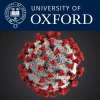Professor Jennifer Beam Dowd
Topics discussed include (00:00:30) work on the social determinants of health, graduate school education at Princeton University in Economics and Public Policy, later postdoctoral research at the University of Michigan and work with Allison Aiello, Assistant Professorship at City University of New York in epidemiology and demography, work at King's College London and Oxford; (00:04:20) interdisciplinary nature of work, collaboration, definition of demography; (00:07:25) focus of demographic research prior to the pandemic, particularly in terms of health; (00:11:40) data analysis and collection methods; (00:14:04) first awareness of COVID-19, including early departmental meeting, outline paper relating to age compositions in populations, social media and media exposure; (00:21:50) follow-up analysis of effect on the U.K. domestically, paper relating to the mapping of hospital capacity comparing with the age structure of different regions; (00:25:45) data and Government policy, particularly the 'bubble paper' relating to limiting social contacts to key people; (00:30:10) work by Melinda Mills relating to face masks; (00:31:36) collaborative work on COVID-19 within the Leverhulme Centre including papers on excess mortality and life expectancy; (00:41:50) socioeconomic determinants of health and mortality, including data collection; (00:46:22) inequalities within society and the potential for policy changes; (00:49:50) communication work with the general public particularly through social media, including 'Dear Pandemic'; (00:56:00) pandemic science communication and its challenges; (00:57:45) 'Querida Pandemia', global interest in 'Dear Pandemic' particularly U.S. engagement, women followers and countering misinformation; (01:02:16) transitioning to non-COVID topics for science communications for the general public, writing on vaccines to alleviate public fears; (01:05:39) educating people on how to read scientific news, empowering people to better understand science literacy by themselves; (01:06:37) experiences with colleagues on the 'Dear Pandemic' project; (01:08:20) impact of the pandemic on work life and routine, including remote working; (01:10:13) working hours, including research, outreach and media work; (01:14:25) negative responses to 'Dear Pandemic'; (01:16:06) personal response to risk of infection with COVID-19; (01:17:21) future research interests as a result of the pandemic, funding for a project to look at mortality trends in the U.K. and Europe including stalling life expectancy; (01:21:20) changes in attitudes to work as a result of the pandemic.




